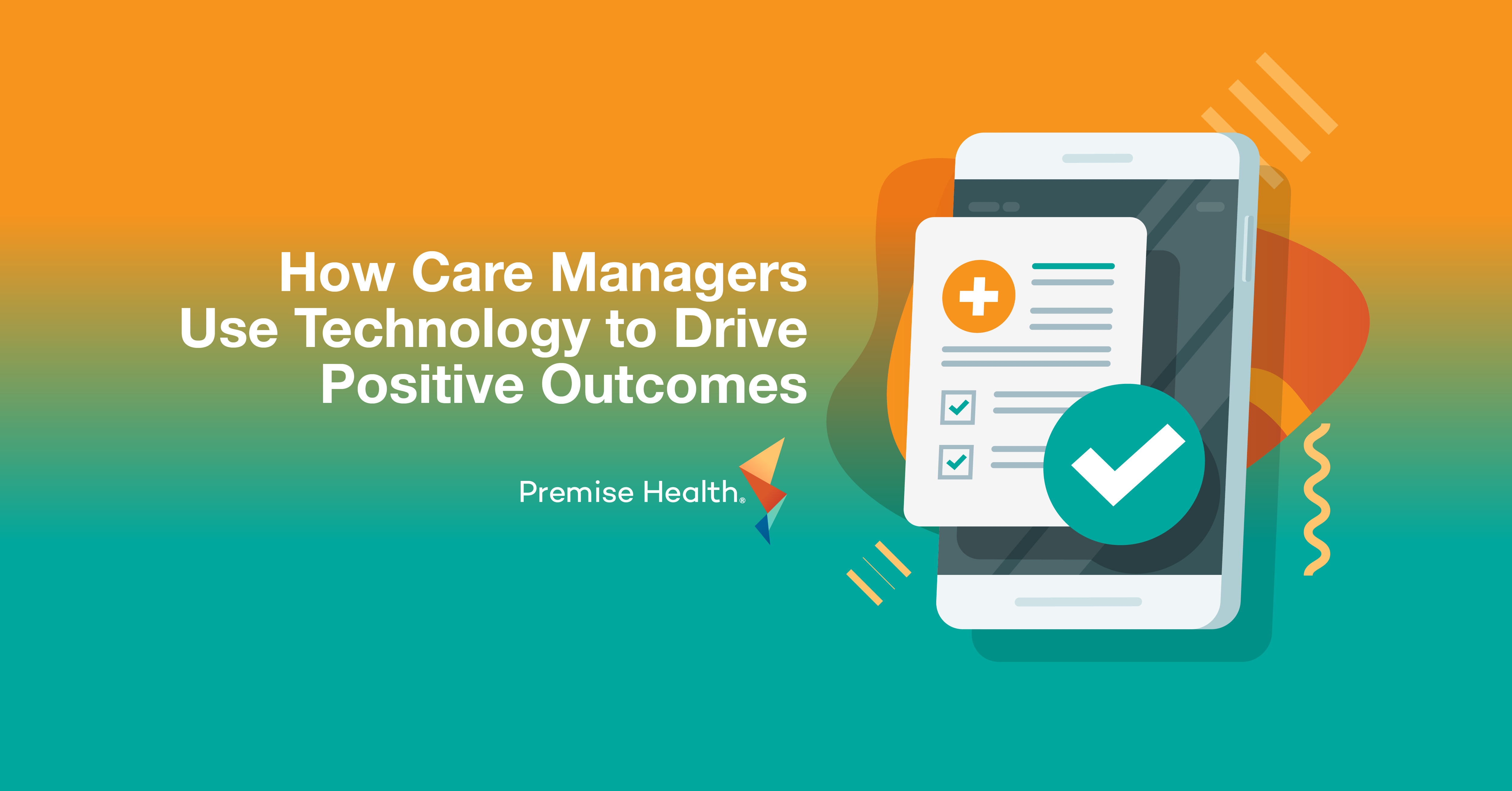What is Lifestyle Medicine?
Lifestyle medicine is an approach to healthcare that promotes the use of health behavior change as the primary way to prevent, treat and reverse many chronic medical conditions, as well as some autoimmune diseases.
Lifestyle medicine is often broken down into seven pillars of a healthy lifestyle: nutrition, movement, emotional wellbeing/stress, sleep, substance free, hydration and getting outdoors. Read on to see how lifestyle medicine can help you live healthier and feel better!
Nutrition

More than two-thirds of adults are either overweight or obese, and less than one-third of the population consumes adequate servings of fruits and vegetables. The nutrition pillar of lifestyle medicine emphasizes the need and value of improving eating habits by adding more whole foods including vegetables, fruits, beans, and whole grains into daily meals. Eating out less than twice a week and swapping a soda for water can help you to minimize processed foods and added sugar. You can also improve your nutrition by eating slowly, staying hydrated, and eating a balanced breakfast every morning. Proper nutrition can reduce health complications such as high cholesterol, high blood pressure, or obesity.
Nutrition tip! To easily implement lifestyle medicine’s nutrition guidelines, check out Dr. Greger’s Daily Dozen here. He recommends a specific number of servings for ten different food groups, beverages, and exercise
Movement
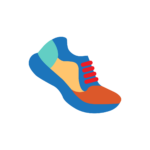
Movement is an important piece of lifestyle medicine. This pillar focuses on the importance of getting and staying active by sitting less and moving more. There are many advantages of physical activity, such as controlling weight, strengthening your bones and muscles, and improving your mental health. Regular exercise can also reduce the risk of cardiovascular disease and type 2 diabetes. At least 150 minutes of moderate exercise per week for adults, in addition to two or more sessions of muscle-strengthening exercises per week, is recommended.
Movement tip! If you have a hard time incorporating movement into your day, test the 20:8:2 rule – for every 20 minutes you spend sitting, you should spend eight minutes standing and two minutes moving around. Simply put, take a break from sitting every 30 minutes! Other simple movement ideas include taking the stairs, using an active work station, or walking outside during breaks.
Low intensity exercise includes activities such as gardening, hiking, or fishing. If you want to kick it up a notch, try out some high-intensity options like group exercise classes, strength training, or recreational sports leagues.
Emotional Wellbeing/Stress

Stress affects everyone in different ways, and lifestyle medicine works to teach people how to focus on positivity, happiness, and meaningful relationships. When we’re stressed, the body has two different responses: sympathetic, typically fight or flight, or parasympathetic, typically rest and recovery. During sympathetic stress, your heart rate and anxiety increase; during parasympathetic, your heart rate decreases, and your body focuses on energy storage.
Stress is more common than you think, with 70 percent of primary care visits being related to stress and lifestyle choices. When not managed, stress can lead to depression, anxiety, and even chronic disease.
Stress tip! Practicing positive psychology can help alleviate stress. Try keeping a gratitude list, expressing your appreciation for those around you, and focusing on what went well during your day. Self-talk also plays a part, so make an effort to stop negative thoughts and reframe them in a positive light.
Sleep

The sleep pillar emphasizes the importance of getting 7-8 hours of restful sleep every day. There are many factors that can affect the quality of sleep, like stress, environmental changes, medications, or even alcohol and food. If you’re struggling to get a good night’s sleep, keep a diary of your sleep habits for ten days and discuss them with your healthcare provider. Keep track of when you go to bed, wake up, get out of bed, take naps, exercise, and drink alcohol or caffeine. By sharing this information with your healthcare provider, you can work together to find the right solution.
Sleep tip! To help you get the recommended amount of sleep each day, consider these tips:
- Eliminate caffeine after midday
- Eat dinner three to four hours before bedtime
- Minimize or eliminate any bedroom noise
- Ensure your bedroom is a tech-free zone
Substance Free
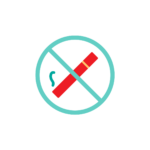
The substance free pillar encourages people to live a life free of tobacco products, illegal drugs, prescription drug abuse or misuse, and excess alcohol. Substance use can have a negative impact on your health in a variety of ways.
- Smokers have a higher risk of developing lung cancer; 90 percent of lung cancer cases are the result of smoking.
- Consuming an excess amount of alcohol can lead to cancer, and it also heightens your risk of liver inflammation.
- Abusing prescription drugs can lead to addiction.
Substance free tip! The easiest way to avoid all of these health risks is to live free of all dangerous substances. If you’re struggling with any form of substance abuse, surrounding yourself with support such as a group of friends, family, counselors, or self-help groups can help overcome challenges.
Hydration

Lifestyle medicine guidelines recommend making water your preferred beverage in order to avoid dehydration. Signs you could be dehydrated are dry mouth, fatigue, headaches, dizziness, or noticing your urine is a darker color than usual.
Hydration tip! The Mayo Clinic recommends taking in about 15 cups of water a day for men and 11 cups a day for women, although your age and activity level can affect those recommendations. The easiest solution is to keep water with you during the day, whether you’re running errands or sitting at your desk. If you don’t enjoy the taste of water, consider adding a lemon or lime to provide flavor. Sometimes our body can confuse thirst with hunger, so if you think you’re getting hungry, try drinking water before grabbing a snack. And always be sure you’re drinking water before, during, and after a workout!
Getting Outdoors

Lifestyle medicine encourages people to enjoy sunshine and fresh air by logging at least 120 minutes outside per week. Studies show 60 percent of people’s wellbeing scores improved after spending just 30 minutes outside. Benefits of spending time outdoors include increased happiness, stress relief, improved sleep, and reduced inflammation.
Fresh air tip! Here are a few easy ways to increase the amount of time you spend outside:
- Work outside while working from home
- Read on your porch or deck
- Eat a meal outside
- Conduct regular activities outside, such as checking email or making phone calls
Changing unhealthy behaviors and making better choices is foundational to preventing disease and promoting good health. During a time in the U.S. when, according to the CDC, six in 10 adults have a chronic condition and an estimated 34.3 million people smoke cigarettes, providers are educating themselves on the benefits of lifestyle medicine. Incorporating one pillar or all seven into your lifestyle could have life-changing benefits for your health and wellbeing.
Premise Health embraces and promotes lifestyle medicine as part of our holistic approach to disease prevention, management, improvement, and reversal by performing regular member lifestyle risk assessments. Learn more here.
Next on industry insights.
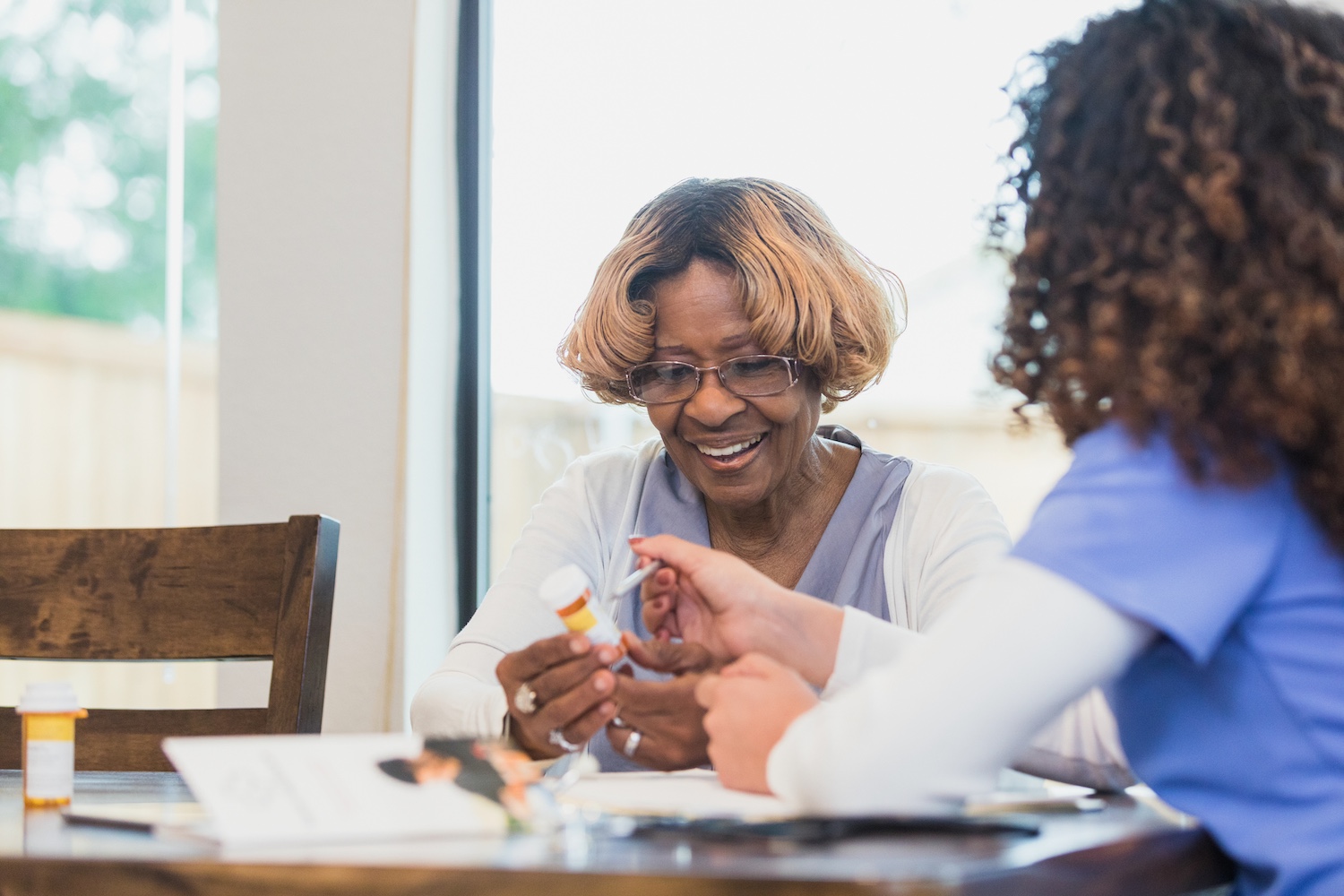
Provider Dispensing and its Role in a Better Care Experience
Read the Blog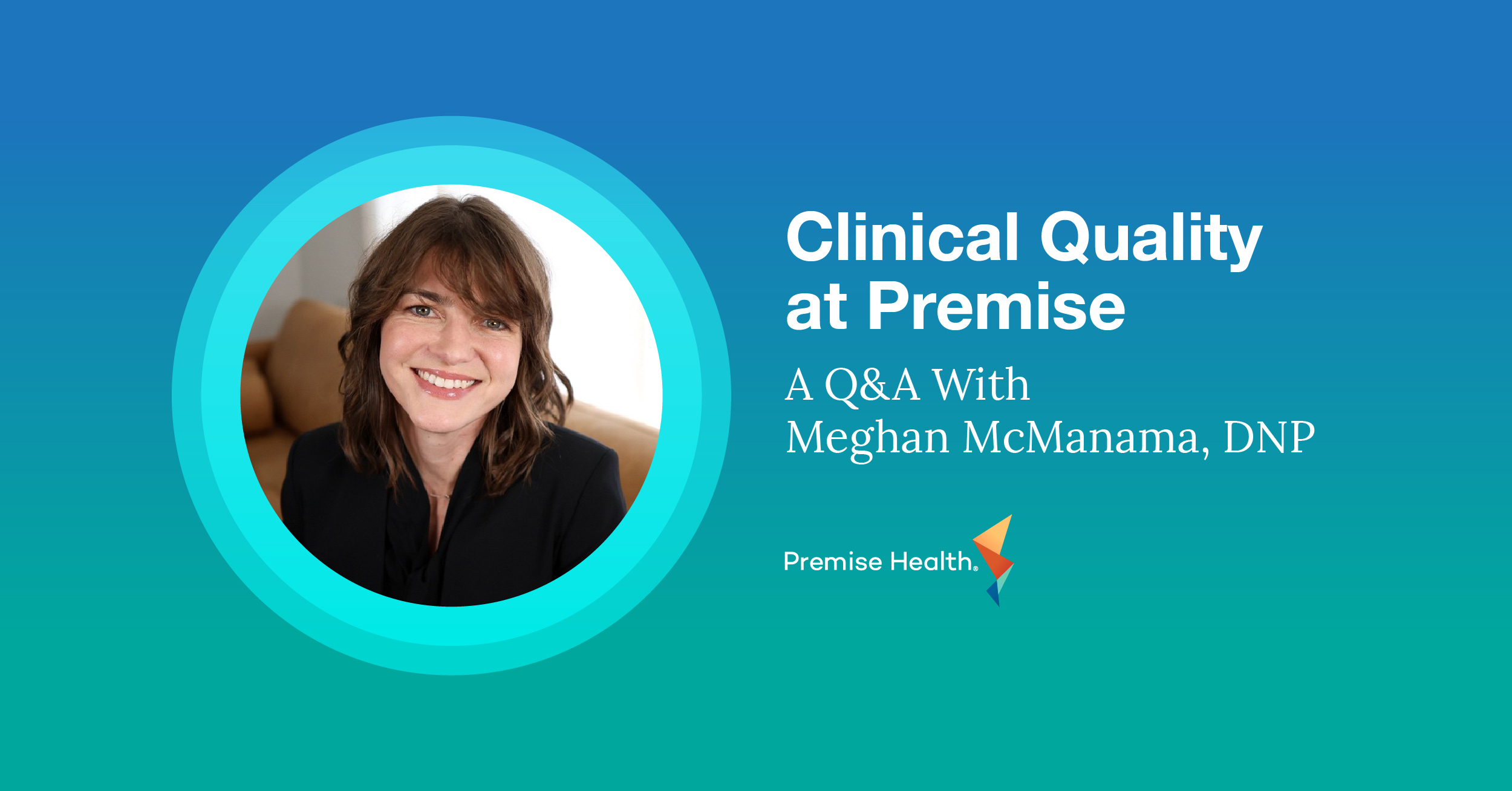
Clinical Quality at Premise: A Q&A With Meghan McManama, DNP
Read the Blog